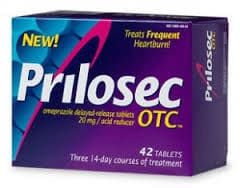
Free Confidential Lawsuit Evaluation: If you or a loved one was diagnosed with nephritis after taking Prilosec, you should contact our law firm immediately. You may be entitled to compensation by filing a suit against the manufacturer and our lawyers can help.
Studies Link PPI Use to Increased Risk of Nephritis
PPIs are emerging as an important contributing factor to an increasing number of cases of acute interstitial nephritis (AIN), according to a 2014 study published in American Journal of Kidney Diseases (AKD). The researchers looked at 133 patients with biopsy-proven AIN, determining the likely cause of the condition to be:
- Medications (70%)
- Autoimmune diseases (20%)
- Infections (4%)
Of the drug-related cases:
- 49% were linked to antibiotics
- 14% were due to PPIs
- 11% were attributed to non-steroidal anti-inflammatory drugs (NSAIDs)
The top 3 drug causes were:
- Omeprazole, the active ingredient in Prilosec (12%)
- Amoxicillin (8%)
- Ciprofloxacin, the active ingredient in Cipro (8%)
Additionally, the study found that patients with drug-related nephritis were older and had higher baseline kidney function than those whose condition was not related to medications, but more severe acute kidney injury. At 6 months post-biopsy, 49% of patients with drug-induced AIN who were treated with steroids achieved complete recovery, 39% had partial recovery, and 12% had no recovery. Longer duration of drug exposure and longer delays in starting steroid therapy were associated with poor recovery, according to the researchers.
In addition to the AKD study, the New England Journal of Medicine (NEJM) in 2006 released information about a case series and literature review that found a link between PPI use and the development of acute interstitial nephritis. Although many of these patients experienced some degree of recovery of renal function, others suffered permanent kidney damage as a result of use of the drugs.
FDA Warning
Prilosec warning labels were updated to include information about the risk of acute interstitial nephritis in December 2014. The U.S. Food & Drug Administration (FDA) warned that the condition can occur at any time during treatment with Prilosec.
Symptoms
Signs and symptoms of acute interstitial nephritis include:
- Blood in the urine
- Fever
- Increased or decreased urine output
- Mental status changes (drowsiness, confusion, coma)
- Nausea
- Vomiting
- Rash
- Swelling of the body
- Weight gain
Treatment
If Prilosec is determined to be the likely cause of your acute interstitial nephritis, you may want to consider switching to a heartburn medication with fewer potential side effects. However, you should never switch or quit taking a prescription drug without talking to your doctor first.
If there is significant renal impairment, you may be required to undergo treatment with corticosteroids for 2-3 months. Stronger immunosuppressive agents may be needed if there is no response to the steroids. Each case of AIN must be reviewed by a nephrologist (kidney specialist).
Do I Have a Prilosec Interstitial Nephritis Lawsuit?
The Class Action Litigation Group at our law firm is an experienced team of trial lawyers that focus on the representation of plaintiffs in Prilosec lawsuits. We are handling individual litigation nationwide and currently accepting new nephritis cases in all 50 states.
Free Confidential Case Evaluation: Again, if you were injured by Prilosec side effects, you should contact our law firm immediately. You may be entitled to compensation by filing a suit and we can help.
